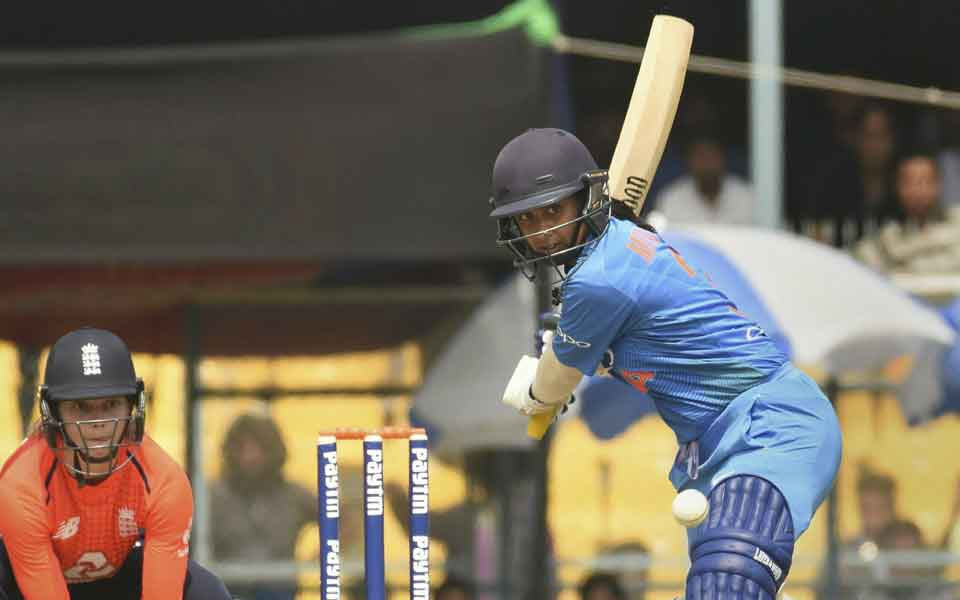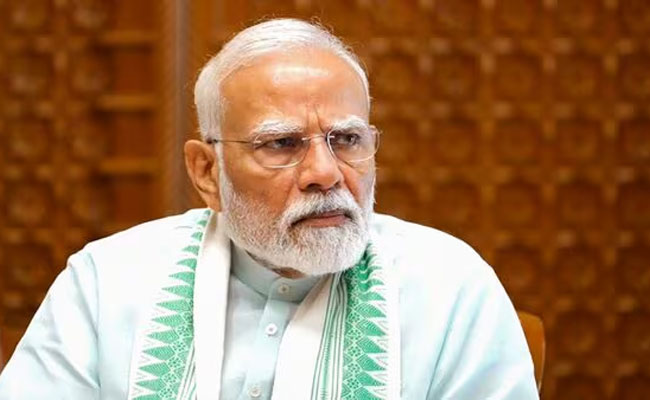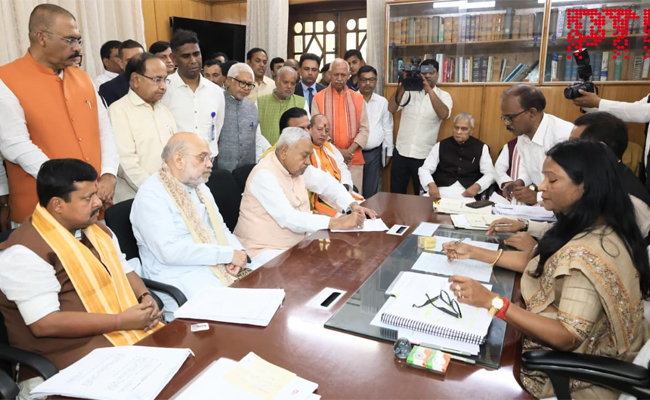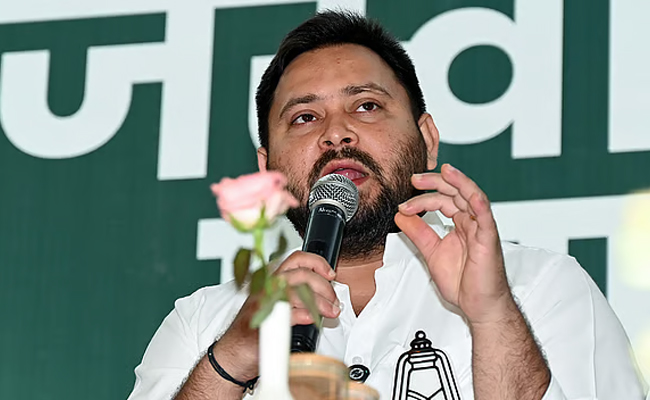Guwahati: The Indian women's cricket team suffered a five-wicket defeat to England in the second T20 International, surrendering the series with a sixth straight loss in the shortest format.
Chasing 112 for an unassailable 2-0 lead in the three-match series, England completed the task in 19.1 overs, holding nerves after losing a few quick wickets.
Opener Danielle Wyatt was Engalnd's star performer with the bat, top-scoring with an unbeaten 64 off 55 balls. During her stay in the middle, Wyatt struck six boundaries, and was ably supported by Lauren Winfield (29).
While Wyatt held one end firm on the way to her fourth T20 half- century, England needed three back-to-back boundaries by Winfield to take the game away from India.
Opting to bowl, England produced a brilliant performance to prevent the hosts from putting up a big score at the Barsapara Cricket Stadium, with Katherine Brunt emerging as the most successful bowler.
The veteran seamer returned figures of 3/17, sending back stand-in skipper Smriti Mandhana (12) and Jemimah Rodrigues to put India on the backfoot.
The wicket of Mandhana was important for England as the opener had powered India to 24 for no loss in 2.3 overs before Brunt had her caught behind.
Coming in to bat at one drop, the young Rodrigues (2) did not last long, getting bowled by Brunt.
In the next over, the dismissal of Harleen Deol by left-arm spinner Linsey Smith (2/11) left the hosts in a spot of bother at 34 for three.
The experienced Mithali Raj, in the last leg of her career, top-scored with 20 off 27 balls, while Deepti Sharma and Bharati Fulmali contributed 18 each.
England were off to a steady start but slow left-armer Radha Yadav did not let the opening partnership flourish, disturbing Tammy Beaumont's stumps in the fifth over.
Leg-spinner Poonam Yadav had Amy Jones caught and bowled in a soft dismissal and Ekta Bisht picked up two wickets, including the
big one of skipper Heather Knight, to leave the visitors in trouble at 56 for four.
But Wyatt and Winfield saw England through with their 47-run partnership for the fifth wicket.
India bowled tightly and conceded just three extras in comparison to England's 18.
England won the first match by 41 runs.
Let the Truth be known. If you read VB and like VB, please be a VB Supporter and Help us deliver the Truth to one and all.
New Delhi (PTI): Prime Minister Narendra Modi on Thursday called for a "swift end" to the conflicts in West Asia and Ukraine, saying no issue can be resolved through military confrontation.
Modi made the remarks after holding wide-ranging talks with Finnish President Alexander Stubb.
"India and Finland, both, believe in the rule of law, dialogue, and diplomacy. We are in agreement that no issue can be resolved through military conflict alone," he said. "Be it Ukraine or West Asia, we will continue to support the swift end of conflicts and every effort towards peace," Modi said in his media statement.
ALSO READ: Baramati plane crash: CID questions VSR Ventures owner
In the talks, the two sides also agreed to accord India-Finland relations in digitalisation and sustainability as a strategic partnership.
"This partnership, from AI to 6G telecom, from clean energy to quantum computing, will give momentum and energy to our cooperation in many high-tech areas," he said. Modi said the India-EU free trade agreement will bolster trade ties between India and Finland.
"This agreement will further strengthen trade, investment, and technology cooperation between India and Finland," he said.
Finnish President Stubb began a four-day visit to India on Wednesday with an aim to shore up bilateral cooperation across a wide spectrum of areas, including trade, investment and critical technology.





